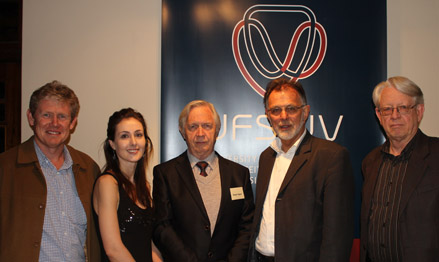Latest News Archive
Please select Category, Year, and then Month to display items
23 April 2020
|
Story Cornelius Hagenmeier
|
Photo Pixabay

The iKudu project, which is an European Union-funded Capacity Building in Higher Education (CBHE) project, has recently launched its blog, which aims to amplify the diverse voices of all iKudu stakeholders. In this space, members of the iKudu team will regularly share their views on the project and related international education topics.
The iKudu project focuses on developing a contextualised South African concept of Internationalisation of the Curriculum (IoC), which integrates Cooperative Online International Learning (COIL) virtual exchanges. The project was launched by the UFS in 2019, together with nine European and South African partner universities. It is funded by the European Union’s Erasmus+ programme with EUR999 881 (approximately R20 million) and is implemented over a three-year period.
The iKudu project is based on the fundamental belief that it is necessary to rethink internationalisation in an uncertain world. First, it is crucial to recognise and transform the power dynamics underlying international academic collaboration. Second, it is essential to develop pedagogies that allow every student to participate in international education, integrating technology where appropriate.
However, while all stakeholders agree on the fundamental tenets of the project and its principal goals, all iKudu stakeholders contribute different perspectives. In the blog, the iKudu stakeholders will provide a space for intellectual discourse on the project and related international education topics, which will allow constructive and critical engagement.
The link to the blog can be found at: https://www.ufs.ac.za/ikudu/ikudu-blogs/Transforming-Curricula-through-Internationalisation-and-Virtual-Exchanges
Supplementum analyses the San origin of South African place names
2013-09-25
|
 |
|
At the launch were, from the left: Prof Lucius Botes (Dean: Faculty of the Humanities), Christine van Deventer (SUN MeDIA), Prof Peter Raper (author), Prof Theodorus du Plessis (Head of Department: Linguistics and Language Practice), and Prof Dirk van den Berg (outgoing editor).
Photo: Jerry Mokoroane
25 September 2013 |
The Acta Academica Supplementum 2012 (2), under the outgoing editorship of Prof Dirk van den Berg, was launched on 16 September 2013. The author, Prof Peter Raper, is one of the leading place-name experts in South Africa. The Supplementum analyses the San origin of South African place names whereby different layers of language contact are exposed. For example, Dipodi (previously Jakkalsdraai), is an adaptation of the original San name. The first ‘di’ is the added Sotho preposition. ‘Po’ is equal to the San word ‘po’ (jackal) and the last ‘di’ equal to ‘/gi’ (to bend). Prof Raper’s research indicates that many place names carry evidence of various language shifts. By analysing these language layers, different phases of language contact are exposed. This research is instrumental in the preservation of a unique aspect of the South African cultural heritage.
Prof Raper is since 2011 Honorary Professor: Linguistics, in the Department of Language Management and Language Practice at the University of the Free State. He is one of South Africa’s leading toponymists. The fourth edition of the New Dictionary of Southern African Place Names, with Dr Lucie Möller and Prof Theodorus du Plessis as co-editors, is currently in the press. He is a member of the Commission for Toponymy of the International Geographical Union, as well as the Working Group for Toponymy of the International Cartographic Association, of which there are only ten members worldwide, and a member of the Editorial Advisory Board for the journal Names.